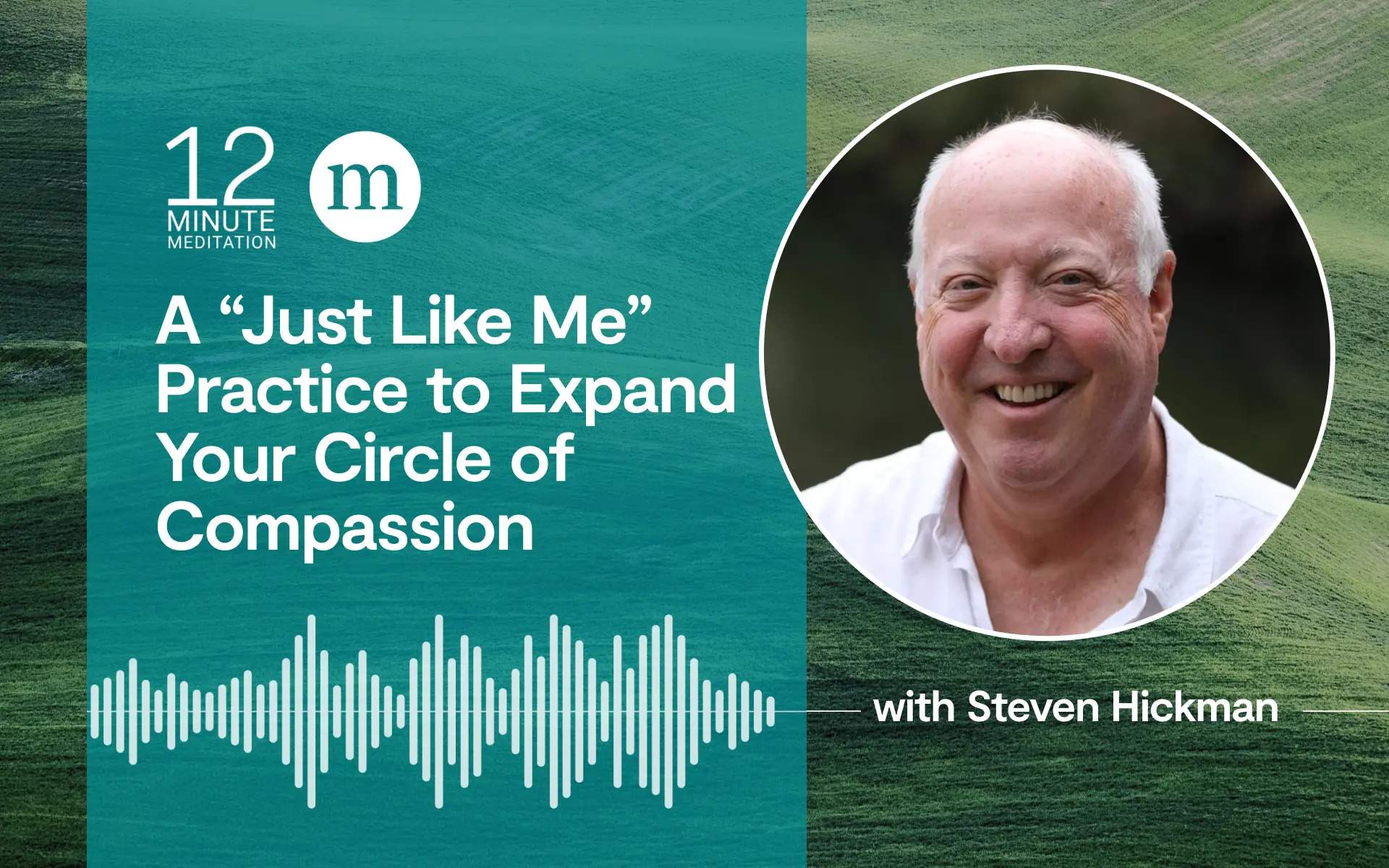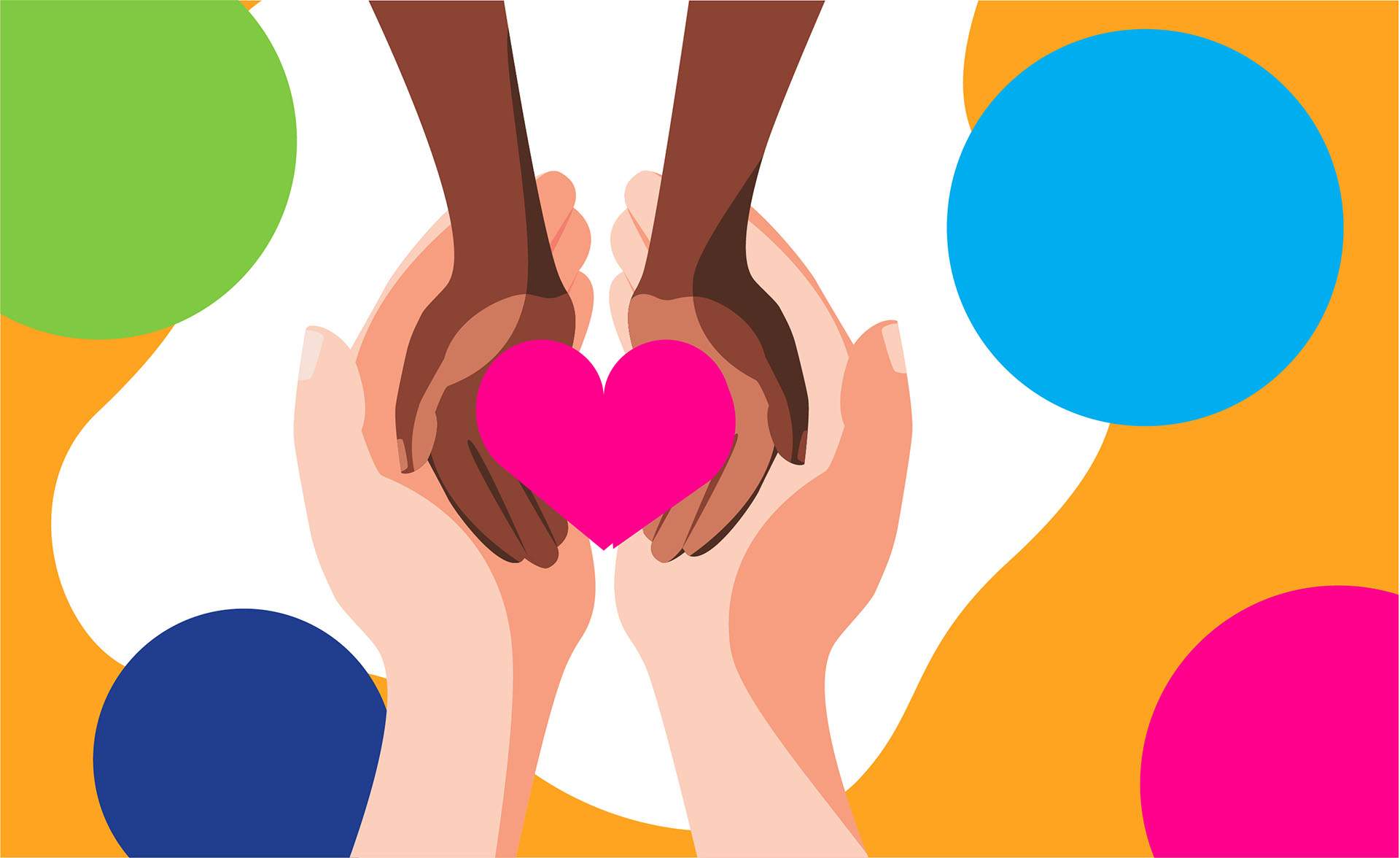When we’re aware that events of war and injustice are unfolding, wherever we are in the world, we often feel a powerful sense of connection with those who are at the center of the conflict. The crisis in Ukraine allows us to witness the plight of the Ukrainian people, everyday citizens who are not so different from ourselves—mounting a courageous and heroic defense of their homeland or being forced to flee as refugees. We also see Russian people who are protesting the actions of their government, risking their own safety in the process.
For many of us, this moment also invites us to reflect deeply upon other instances of violence that, sadly, are always occurring. Conflicts in countries like Iran, Syria, Yemen, or Afghanistan (among many others) are often omitted from our news cycle. Despite this, the people who are suffering in conflicts around the world are not so different from ourselves.
The invitation with this practice is to put aside ideas and concepts about differences, shame, fear, survival, and the rest, and to simply see if you can begin to develop a felt sense of common humanity. What you are tapping into here is the awareness that all of us wish for happiness and freedom from suffering, that this too is a part of our common humanity.
A “Just Like Me” Practice to Expand Your Circle of Compassion
A “Just Like Me” Practice to Expand Your Circle of Compassion
This meditation is inspired by the writing and teaching of Thupten Jinpa in his book A Fearless Heart: How the courage to be compassionate can transform our lives.
- Take some time to settle into your body for a few minutes, allowing your attention to drop inside. Take note of whatever is present in the way of sensation inside your body. You may notice the touch of clothing, the pressure of the supporting surface on certain parts of your body, or just sensations of coolness or warmth, relaxation or tension, ease or discomfort. Take note of where and how you are in this moment. You may notice the movement of breath into and out of the body as well, recognizing that the breath has continued to move on its own since you last attended to it.
- Imagine someone whom you hold dear, someone who brings a smile to your face when you think of them, someone with whom you have a relatively easy and uncomplicated relationship. This may be a family member like a child, a grandparent, or even a pet. Try to go beyond the idea of this being and see if you can actually feel what it feels like to be in their presence.
- Notice any pleasant feelings that may arise as you hold this beloved being in your awareness and see how easy it is to acknowledge that they, too, have the same aspiration for genuine happiness that you have.
- Now call to mind someone else, someone that you recognize but don’t have much meaningful interaction with and don’t feel any particular closeness to. This may be a person whom you see quite often, on the street, behind the counter at your favorite coffee shop, or driving the bus you take regularly. Notice what feelings arise for you as you picture this person and how these feelings may be different from what you felt in regard to the loved one you imagined first.
- See if you can imagine what it might be like to be this person. Usually, we don’t give much thought to the happiness of people in neutral roles in our lives like this. Imagine their life, their hopes and fears, which are every bit as real, complex, and challenging as yours. You may even recognize a certain similarity between yourself and this other person at the level of your common humanity. “Just like me, she wishes to be happy and to avoid even the slightest suffering.”
- Next, take some time to see if you can call to mind someone you don’t know at all, and who seems very much unlike you at first glance. Perhaps an image comes to mind from the news or in your imagination or from your previous travels. Maybe consider someone facing hardships far different from your own right now. Perhaps you might call to mind someone who doesn’t look like you . . . or someone who has an entirely different cultural background or life circumstances. You may find yourself thinking just now of people suffering through war or resisting tyranny anywhere on the globe.
- Take the time to see if you can look past the differences to what you have in common with this person or these people. Imagine looking into their eyes, sitting with them in meditation, feeling just a little of the joy and pain and sorrow and fear that they may experience . . . simply because they are human, just like you.
- See if you can put yourself in this person’s shoes for a moment, recognizing that they are an object of deep concern to someone, a parent or a spouse, a child or a dear friend of someone. Begin to acknowledge that even this person who seems so different has the same fundamental aspiration for happiness that you have. Allow your attention to stay with this awareness for some period of time (say 20 to 30 seconds). Allow thoughts and feelings to come and go as they will, as you remain present to whatever arises, with no other agenda but to observe and be kind to yourself in that presence.
- Finally, see if you can bring together these three people in one mental picture in front of you. Take some time to reflect on the fact that they all share a basic yearning to be happy and free from suffering. At this dimension, there is no difference between these three people. In this fundamental aspect, they are exactly the same. Just take the time to relate to these three beings from that perspective, from the point of view that they share the aspiration for happiness and a kind of perfect imperfection.
- Now include yourself in this circle of awareness, reminding yourself that:
These people have feelings, thoughts, and emotions, just like me.
These people, during their lives, have experienced physical and emotional pain and suffering, just like me. These people have been sad, disappointed, angry or worried, just like me.
These people have felt unworthy or inadequate at times, just like me. These people have longed for connection, purpose, and belonging, just like me.
These people want to be happy and free from pain and suffering, just like me. These people want to be loved, just like me. - With this deep recognition that the desires to be happy and to overcome suffering are common to all, silently repeat this phrase: “Just like me, all others aspire to happiness and want to overcome suffering.”
- Take some time to sit with whatever wishes or feelings arise from this practice, allowing them to arise and fall away. Your only agenda is to notice and take note of their arising.
Adapted from Self-Compassion for Dummies by Steven Hickman.
read more
How Mindfulness Is Giving Moments of Peace to Refugees
Aiming to foster inner peace and resilience for the millions of people forcibly displaced around the world, a team of scientists in Israel has designed a mindfulness program that meets refugees exactly where they are.
Read More
Loving-Kindness Meditation with Sharon Salzberg
Sharon Salzberg—one of the world’s leading loving-kindness meditation teachers—offers us a profound sense of connection through her teachings, guiding us to live our lives with greater intention and compassion.
Read More
A User’s Guide to a Journey Called Mindfulness
Mindfulness meditation is not a one-time thing. You do it again and again. As you keep doing it, a variety of challenges emerge. Here’s some advice for traveling the path of meditation.
Read More









